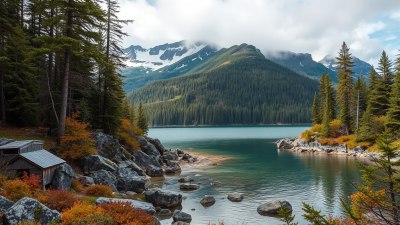Why Traveling Off-Season Makes Trips Even Better
Fewer crowds, lower prices, and a more authentic experience—what’s not to love?

Most people plan their trips around peak travel seasons, following the same school holiday schedules, summer breaks, and major event calendars. But what if the best way to experience a destination isn’t when everyone else is there? Traveling off-season is an underrated travel hack that not only saves money but also makes trips more enjoyable, more authentic, and far less stressful. Here’s why skipping the high season can completely change the way you experience travel.
Fewer Crowds, More Breathing Room
Nothing ruins the magic of a beautiful place like fighting through a sea of tourists. Off-season travel means shorter lines, more space, and the freedom to explore without the constant buzz of other visitors. Museums, landmarks, and even local restaurants feel more relaxed, allowing for a deeper, more immersive experience. No one wants to spend half their vacation waiting in line—going off-season means you actually get to enjoy the places you came to see.
Lower Prices on Everything
One of the biggest perks of traveling during the low season is significantly cheaper prices. Flights, hotels, and even local tours drop their rates when demand is lower. Many destinations that feel out of budget during peak months suddenly become affordable, allowing travelers to upgrade their experience without spending more. Want that luxury hotel with an ocean view? Off-season prices might make it possible.
Better Service and More Authentic Interactions
In high season, locals are often overwhelmed, moving through a constant flood of tourists. But off-season, they have more time to engage, share stories, and offer genuine hospitality. Restaurant servers aren’t rushed, hotel staff can give better recommendations, and shop owners are more likely to chat instead of rushing you out. This makes for a more personal and authentic experience, where connections feel real rather than transactional.
Milder Weather (Most of the Time)
Off-season travel doesn’t always mean bad weather—sometimes, it means better weather. Avoiding peak summer means skipping unbearable heat in certain destinations. Shoulder seasons (spring and fall) often offer perfect temperatures without the extreme conditions of peak months. Even in colder locations, winter trips have their charm—imagine enjoying Europe’s historic streets wrapped in a cozy scarf instead of sweating through crowds in the summer heat.
A Chance to See a Different Side of a Destination
Visiting a place outside of its peak season reveals a more local, everyday rhythm. Coastal towns in winter, famous ski resorts in the summer, or cities during their quieter months all have a different charm that most travelers never get to see. Instead of feeling like a tourist in a theme park version of a place, you get a glimpse of what life is actually like there.
Unique Seasonal Experiences
Traveling off-season often means discovering events and traditions that tourists usually miss. Local festivals, seasonal markets, and cultural celebrations offer experiences that feel special rather than staged. Whether it’s enjoying cherry blossoms in Japan before the crowds arrive, seeing the Northern Lights in a frozen landscape, or strolling through holiday markets in Europe, off-season travel can create unexpected, unforgettable moments.
More Flexibility, Less Stress
Last-minute bookings? No problem. Spontaneous itinerary changes? Easy. Off-season travel means less competition for reservations, making it much easier to be flexible with plans. Instead of meticulously booking everything months in advance, you can embrace a more relaxed, go-with-the-flow travel style—something that’s nearly impossible during peak season.
The Best Trips Aren’t Always When Everyone Else Goes
While peak season has its appeal, off-season travel offers an entirely different kind of magic—one that’s quieter, cheaper, and often more rewarding. It’s about experiencing destinations in a way that feels more personal, more enjoyable, and far less chaotic. Next time you plan a trip, consider shifting your dates—you might just find that the best time to visit a place is when no one else is there.











